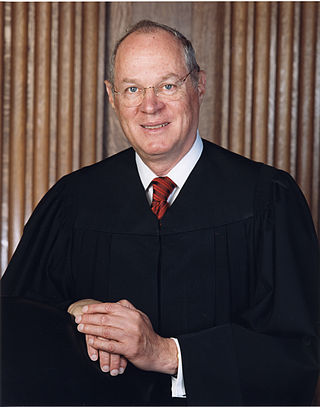| Type | Case | Citation | Issues | Joined by | Other opinions |
|---|
101
| Minneci v. Pollard | 565 U.S. 118 (2012)
| Eighth Amendment • cruel and unusual punishment • privately-run prison • adequate alternative causes of action under state tort law | Roberts, Scalia, Kennedy, Thomas, Alito, Sotomayor, Kagan | |
|
402
| Golan v. Holder | 565 U.S. 302 (2012)
| copyright • Berne Convention • public domain | Alito | |
|
103
| Reynolds v. United States | 565 U.S. 432 (2012)
| Sex Offender Registration and Notification Act • applicability to pre-Act offenders | Roberts, Kennedy, Thomas, Alito, Sotomayor, Kagan | |
|
404
| Wetzel v. Lambert | 565 U.S. 520 (2012)
| Brady disclosure • materiality of police notes to witness impeachment | Ginsburg, Kagan | |
|
205
| Messerschmidt v. Millender | 565 U.S. 535 (2012)
| Fourth Amendment • law enforcement reliance on overbroad search warrant • qualified immunity | | |
|
106
| Douglas v. Independent Living Center of Southern Cal., Inc. | 565 U.S. 606 (2012)
| Medicaid • state law reduction of payments to providers • review by Centers for Medicare & Medicaid Services • private action to enforce federal reimbursement criteria • Supremacy Clause | Kennedy, Ginsburg, Sotomayor, Kagan | |
|
107
| Mayo Collaborative Services v. Prometheus Laboratories, Inc. | 566 U.S. 66 (2012)
| patent law • laws of nature exemption from patentability • diagnostic test of drug potency | Unanimous | |
|
408
| Zivotofsky v. Clinton | 566 U.S. 189 (2012)
| political question doctrine • U.S. position on status of Jerusalem • Foreign Relations Authorization Act, Fiscal Year 2003 • passport designation of births in Jerusalem | | |
|
409
| Setser v. United States | 566 U.S. 231 (2012)
| Sentencing Reform Act of 1984 • federal court discretion to order consecutive or concurrent sentences in anticipation of state court sentence | Kennedy, Ginsburg | |
|
410
| Florence v. Board of Chosen Freeholders of County of Burlington | 566 U.S. 318 (2012)
| Fourth Amendment • strip searches in jail of arrestees of minor offenses | Ginsburg, Sotomayor, Kagan | |
|
211
| Mohamad v. Palestinian Authority | 566 U.S. 449 (2012)
| Torture Victim Protection Act • liability of organizations | | |
|
112
| United States v. Home Concrete & Supply, LLC | 566 U.S. 478 (2012)
| Internal Revenue Code of 1954 • overstatement of basis in property • statute of limitations for tax deficiency | Roberts, Thomas, Alito; Scalia (in part) | |
|
413
| Hall v. United States | 566 U.S. 506 (2012)
| bankruptcy • priority of taxation on post-petition sale of farm assets | Kennedy, Ginsburg, Kagan | |
|
114
| Armour v. Indianapolis | 566 U.S. 673 (2012)
| Equal Protection Clause • disparate tax treatment • administrative justifications under rational basis review | Kennedy, Thomas, Ginsburg, Sotomayor, Kagan | |
|
215
| Williams v. Illinois | 567 U.S. 50 (2012)
| Sixth Amendment • Confrontation Clause • expert testimony | | |
|
416
| Christopher v. SmithKline Beecham Corp. | 567 U.S. 142 (2012)
| Fair Labor Standards Act • exemption of outside salesmen from overtime regulations • status of pharmaceutical sales representatives | Ginsburg, Sotomayor, Kagan | |
|
117
| Dorsey v. United States | 567 U.S. 260 (2012)
| Anti-Drug Abuse Act of 1986 • Fair Sentencing Act • mandatory minimum setencing • applicability of post-Act sentencing to pre-Act offenders | Kennedy, Ginsburg, Sotomayor, Kagan | |
|
418
| Knox v. Service Employees | 567 U.S. 298 (2012)
| mootness due to voluntary cessation • First Amendment • compulsory fees for political lobbying by public sector agency shop | | |
|
419
| Southern Union Co. v. United States | 567 U.S. 343 (2012)
| Resource Conservation and Recovery Act of 1976 • Sixth Amendment • right to jury determination of facts relating to criminal fines | Kennedy, Alito | |
|
220
| Miller v. Alabama | 567 U.S. 460 (2012)
| Eighth Amendment • Cruel and Unusual Punishment • sentencing of juveniles to life without parole | Sotomayor | |
|
421
| American Tradition Partnership, Inc. v. Bullock | 567 U.S. 516 (2012)
| First Amendment • free speech • campaign finance reform • corporate personhood | Ginsburg, Sotomayor, Kagan | |
| Breyer dissented from the Court's brief per curiam decision, which held that a Montana state law banning political expenditures by corporations was precluded by Citizens United v. Federal Election Commission . Breyer wrote that he disagreed with the holding in Citizens United and would support reconsidering it. Even accepting that decision, however, Breyer did not believe it precluded a finding that Montana had a compelling state interest in limiting corporate political expenditures in light of the particular "history and political landscape in Montana." |
222
| United States v. Alvarez | 567 U.S. 709 (2012)
| Stolen Valor Act of 2005 • First Amendment • freedom of speech • protection of false statements | Kagan | |
|


